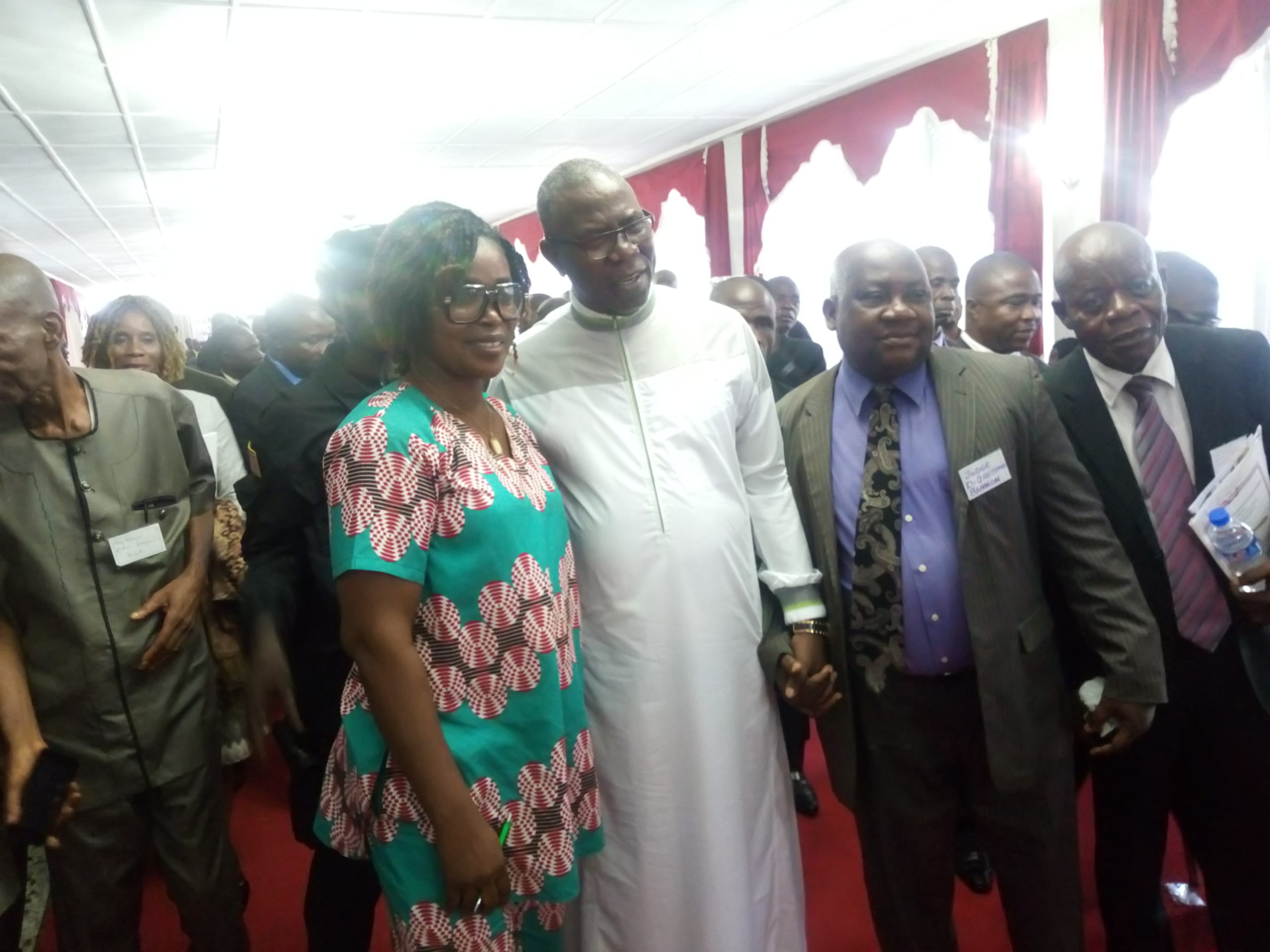PHOTO: Justice Kaba dressed in white gown at the Trial Judges Conference
By Garmah Never Lomo, garmahlomo@gmail.com
Not all lawyers are excellent material for judicial appointments, says an Associate Justice of the Supreme Court of Liberia, Yusif Kaba.
Justice Kaba made the assertion when he served a keynote speaker at the eighth annual conference for the election and installation of officers of the National Association of Trial Judges of Liberia (NTAJL) at the Temple of Justice over the weekend.
The conference was held under theme: “Enhancing judicial independence for peace and development.”
Associate Justice Kaba said the quality of a good judge is calculated in the Judicial Canon 38 as follows:
In every particular case a judge’s conduct should always be above reproach. He should be conscientious, studious, thorough, courteous, patient, just, impartial and fearless of public clamor regardless of public praise, and indifferent to private, political or partisan influence; he should administer justice according to law and deal with his appointment as a public trust.
The cannon also says he or she should not allow another affairs or his/her private interest to interfere with the prompt and proper performance of his judicial duties, nor should he administer the office for the purpose of advancing his personal ambitions or increasing his popularity.
Quoting thr Judicial Cannon, Justice Kaba added to certainly select lawyers with these qualities does not take only political considerations and it should involve knowledge-based assessment.
This may be the reason why most common law jurisdiction establishes judicial council to screen potential candidates for judicial appointment and oversee the investigation and to discipline judges. He added that such establishment of this council by constitutional provision will give more legitimacy to the judicial inquiry commission whose function will be exercised by the Council, the Liberian Associate Justice said.
Narrating further, Justice Kaba expressed that judicial independence implies both that judges must be individuals of integrity and must decide cases before them in accordance with the principles of judicial independence and free from outside influence.
He further said a Judge should be conscious that his/her action inaction has a bearing on the image of the judiciary as a body.
Justice Kaba however, narrated that a judge should be aware that the perception of the judicial institution is built not only from the eloquence of the judge or the depth of knowledge he displayed. But rather, he should instead be mindful that his demonstrated integrity goes a long way in forming the public perception of the judicial institution.
Judges therefore, should hold it as a duty to ensure that their interaction with the public and court users does not send the wrong signal thereby eroding the public confidence in our system of justice, Associate Justice Kaba told Liberian Judges.
Eroded public confidence in the judiciary results in disregard for the judicial system, undermine its independence, and consequently breakdown of law and order, which is a recipe to choose and lawlessness.
Meanwhile, Justice Kaba has said the recent reduction in the compensation of judges under the salaries harmonization process is a concern to all judicial officers.
He stressed that while they appreciate the good intention of the government in the implementation of such program, the Judiciary however cautioned that Article 72 of the Constitution and the peculiar nature of the judiciary should have been given due consideration in the implementation of the harmonization scheme.
The position of a judge is sacred and as priest of justice, the entire life of a judge is devoted to his sacred duty, the Supreme Court Justice noted.
According to him, the Judge’s job is not limited to the time he spends in court even at home, he continues to be engaged in his vocation and the nature of a judicial officer is calculated in judicial Canon 6 as follows:
The Judicial Cannon says the judge is government paid official and must be paid adequately; he hold an exalted position which prevents him or her from engaging in any business pursuit, therefore he must be provided with the necessities of life and every means by which he will be able to perform his judicial duties effectively, efficiently and speedily.
Judicial Canon 6 adds that the judge must be encouraged and given incentive to live decent and dignified life that would prevent financial and domestic worries and enable him or her to repel temptation which is susceptible to human life.
As priest of justice, a judge should not be given cause to be corrupted in the performance of his judicial duties so as to be justified for any disciplinary action taken against him or her if found deficient in those qualities.

